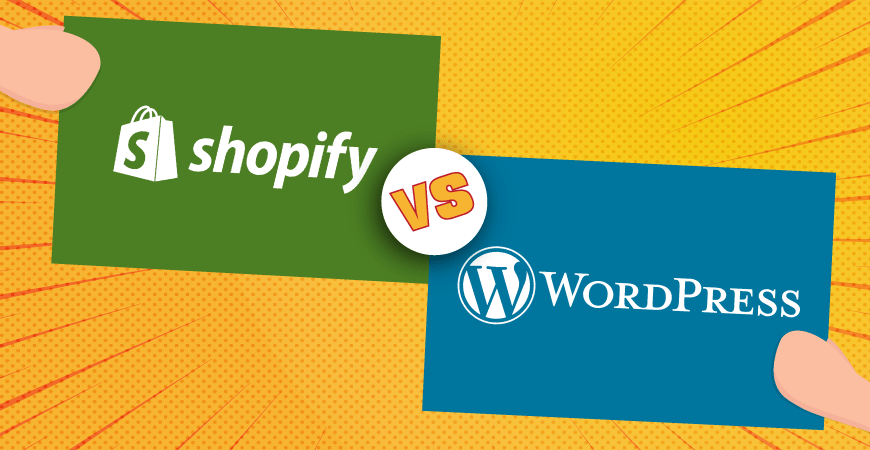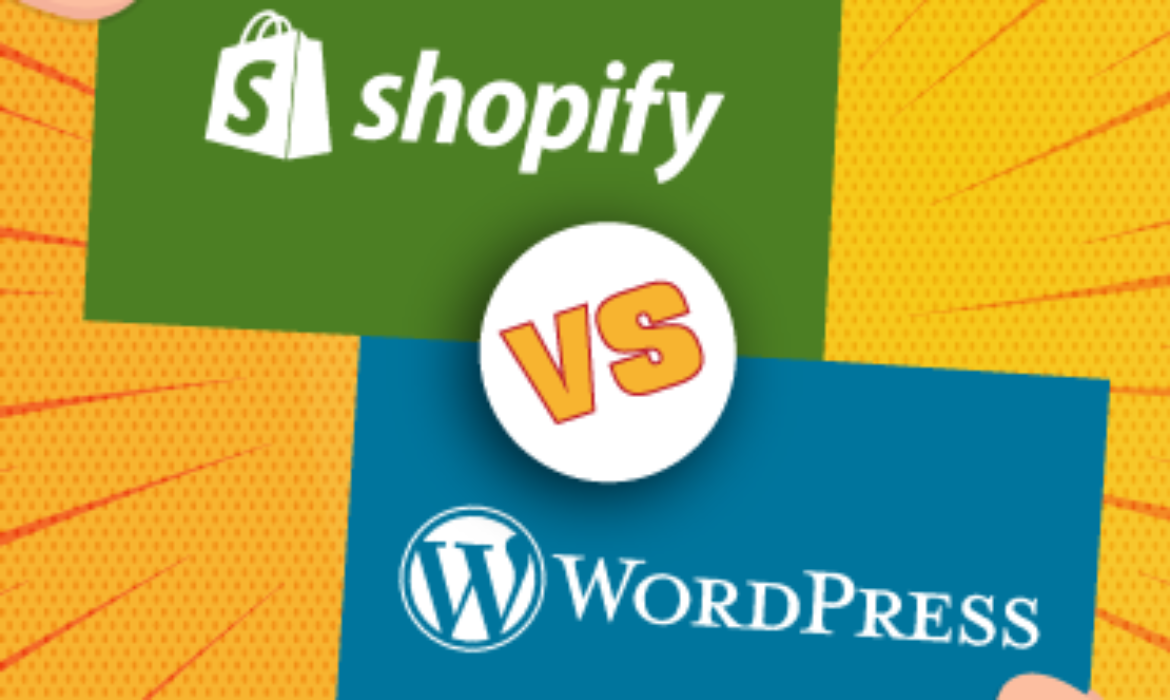
WordPress vs Shopify… I know you are here to know about these platforms and which one is better between both of them. And That why we will discuss specifically about both of these platforms in detail. Lezz go! Let’s have a look at WordPress first.
What is meant by WordPress?
WordPress is a free and open-source content management system written in PHP and paired with a MySQL or MariaDB database. It is a content management system ( CMS ) that allows you to host and build websites. You can use WordPress.com to create a free blog or a website. Additional costs can be applied for commercial WordPress themes also known as premium WordPress themes.
WordPress contains a plugin architecture and template system that allows you to customize any website that suits your requirements and needs. Moreover we can also build ecommerce websites on WordPress using the WooCommerce plugin. Adding a WooCommerce plugin is quite simple and easy. You can add the WooCommerce Plugin by following the steps given below.
- Simply go to the Plugins > add new
- Search for WooCommerce
- Click the Install now button.
- Click the activate now and you are ready for the WooCommerce Wizard.
Types of WordPress websites:
Mainly 2 types of WordPress websites are there for the users according to their requirements.
Hosted website:
A hosted website is built on some website builder such as WIX, Squarespace or WordPress.com. These are SaaS platforms offering an All-in-one website Solution. They provide the hosting and the software to build the website.
Self Hosted Website:
While WordPress.org is a self hosted website option. It’s an open source platform that means you can download it and revamp it as you like. The software requires an account with a host to purchase a domain from a domain register.
What is Meant by Shopify?
Shopify is an online ecommerce platform that is used to build your stores online and offline. It is a web application that has been specifically designed to allow merchants to build and launch their own online stores. This website builder helps everyone ranging from beginner levels to the experts. It assists every level of user and it’s well known for its user friendly behaviour.
Shopify provides a wide range of ready made templates that can be used according to the niche and can be customized to meet the branding requirements and it allows both physical and good deeds to be sold.
Shopify plays the role of software as a service (SaaS) that means that you don’t own the software’s copy instead you have to pay monthly to use the software regularly. Shopify rates vary differently for every category. Here is the monthly rate list for using Shopify:
Lite: 9 $ per month
Basic: 29 $ per month
Shopify: 79 $ per month
Advanced: 299 $ per month
Plus: around 2000 $ per month
Things which can we sell on shopify:
There are mainly a lot of things that can be sold on Shopify but some of the listed stuff is given below:
- Clothes
- Jewelry
- Home accessories
- Beauty products
- Pet products
- Automobile spare parts
- Kids stuff
- All kinds of bags
Although these are just some basic stuff. There is a lot of stuff that you can sell online. And there is only one condition that anything you are selling online must be legal and not harmful for anybody regarding any situation in the particular country.
Shopify a user friendly platform
Shopify is one of the easiest ecommerce builders to help beginners and small businesses owners set up and run their online store for the first time. Shopify is user friendly and even those with no ecommerce experience or coding knowledge can create an online store fairly quickly. Even the non-tech savvy folks can use it without facing any problems. Signing in to shopify gives you access to a store builder, free themes, payment gateways, unlimited products and much more.
Now let’s move on the differences and similarities of WordPress and Shopify The main difference between WordPress and Shopify is that Shopify is an online service/tool whereas WordPress is a specific software that you need to install on your own.
- Both platforms are user friendly in terms of long term as both platforms are prefered by most of the people. The audience of both of the platforms is majority the same because people who use these platforms have experienced these platforms at least once.
- Both platforms are user friendly in terms of long term as both platforms are prefered by most of the people. The audience of both of the platforms is majority the same because people who use these platforms have experienced these platforms at least once.
- WordPress is more versatile and has so many plugins. You can change many of the essential components in Shopify. But you won’t have total control over each thing in WordPress.
- Well if we talk about SEO, then advanced SEO is also provided by WordPress more Professionally. So WordPress beats Shopify in SEO optimization as well.
Now let’s talk about the main question which platform is suitable for you? Well, if we talk about the suitable platform then both the platforms are suitable but there are some pros and cons of each platform, WordPress is Superior to Shopify as it leads in many ways from Shopify.
WordPress is a platform which is used for creating blog content and building websites. WordPress makes a way to connect to the WooCommerce plugin which allows us to take place in the industry of Ecommerce.
Shopify is an Ecommerce Web application that helps us to create our own independent online ecommerce stores. One of the pros of Shopify is that a person with zero knowledge can easily build his own store without any technical technique and coding very easily.
So if you want to build a Blog and content website then you must go for WordPress. And if you wanna build an online ecommerce store then Shopify is available. As we know, WordPress is also able to convert the website into ecommerce by using the WooCommerce plugin. So we have a choice in WordPress and Shopify in building our website. WordPress is superior to Shopify in the terms of Payment Processing, SEO, Conversion rate Optimization and Plugins. In the end it’s all about the personal preference of the user. A person can use any platform for their which suits their requirements the most


